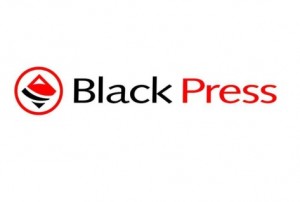(ThyBlackMan.com) Like its White counterpart, Black newspapers must adjust to a rapidly changing digital age. But unlike White newspapers, the Black Press continues to play a valuable and unique role in the African American community, panelists said at a panel last week at the National Press Club.
“I’m a product of Black schools and Black churches,” said Benjamin Chavis, an online educator and longtime activist. “The Black press has a value to all people, but if Black people don’t celebrate the Black press why should we expect other people to celebrate it?”
Harvard Law Professor Charles Ogletree also praised the Black Press noting that he still prefers to hold a printed copy of Black newspapers.
But the youngest member of the panel challenged members of the National Newspaper Publishers Association (NNPA) to target younger readers.
Jineea Butler, founder of the Socials Services of Hip Hop and the Hip Hop Union said the Hip Hop generation needs support, too.
“Corporations come to the Hip Hop community and engage us,” said Butler. “The disconnect is that the people that came before us don’t think that we want the information.”
want the information.”
During the panel discussion, Butler said that the Hip Hop generation not only wants information, but they also desperately need leadership, too, and the Black Press can fill that void.
“You guys have got to come teach us,” said Butler speaking to an audience of Black publishers. ”You need to show us the way.”
Chavis, who works with many Hip Hop artists, agreed that publishers, who suffer from an aging readership, need to attack younger readers, many of whom get their news primarily through mobile devices.
“The Hip Hop generation didn’t fall out of the sky,” he said. “They were given birth by this generation. The irony is some of us don’t even recognize or affirm what we gave birth to. We can use our newspapers to reaffirm that recognition and I guarantee that reciprocity can take off.”
Ogletree said both old and young can benefit from better communications.
“It’s cheaper, it’s efficient, it’s very effective and when young people are reading, we need to make sure they’re reading about what’s happening to us as well,” he said.
Kevin Lewis, director of African American Media for the White House, stated: “There is no Barack Obama president without the Black Press. It’s not just the Black press. It’s the Black community and Black leaders.”
Lewis said President Obama supported the Black Press and recognized that Black newspapers were a great conduit to the Black community.”
But some publishers have complained that the 2012 Obama presidential campaign only spent roughly $1.2 million advertising in Black newspapers and nearly a billion dollars in other media buys.
Chavis said all advertisers should be held accountable.
“We march for everything else, why can’t we march for the Black press?” asked Chavis, who is also the president of the Hip Hop Summit Action Network, a non-profit group that works with Hip Hop artists and entertainers to engage young people for social and political change. “We need to think about advertising in a new way.”
Lewis said, “There’s a history in the Black Press. I think that there is also a lot of worth in having a physical newspaper.” Lewis continued: “News is so immediate, that there is a value in having something online as soon as something happens. In the past we would be able to embargo something for a week, but now we’re just embargoing it for 10 minutes.”
After the panel discussion, Cloves Campbell, chairman of the National Newspaper Publishers Association, said that reaching that younger, more connected, Hip Hop generation remains a top priority.
“Our readership is getting older and we have to make sure that we put content in our newspapers that the younger generation wants to read,” said Campbell. “Bringing Jineea in was the best thing that we could have done to get that other perspective from a younger person who is right there on the ground with the people we are trying to reach. Having her here and having her participate more in the future will be the key to our success.”
Campbell also said that the Black Press has to embrace technology and learn to connect to readers through social media. Campbell said that Black newspapers also need to be more community-oriented and show more support for local organizations.
He said, “We have to hit the ground and get some perspective on what readers want by hosting forums, round table discussions and focus groups.”
Written By Freddie Allen

















The Black press is needed and an important institution, but has lost touch like so many other organizations that were in the fore front of our community. The Black press needs to become more relevant and be more progressive in it’s stance on certain issues. For one it needs to focus more on Black unity and the mindset of doing for self. I wrote an article with the title, Black Unity in Action, Maybe, and sure enough it wasn’t picked up by any mainstream Black media.
It talked about how by working together, we could stop the losses of Black book stores, publishing companies, magazines and newspapers, if we only started to work together. There will come a time, if it hasn’t already when we won’t have a choice but to come together in order to survive, but I guess it hasn’t gotten that bad yet. We’re still focusing on the American dream, which has really become an American nightmare for a lot of us.
Black Unity means financial independence and happiness